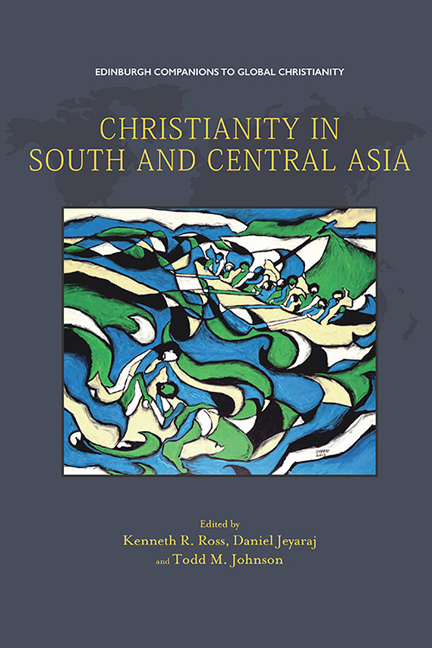Gender
Published online by Cambridge University Press: 30 April 2020
Summary
Regional Overview, by Sheela Jeyaraj
Gender issues in contemporary South and Central Asia engage not merely with the biological factors of being either a woman or a man or a transgender person. Instead, they are concerned with deep-seated prejudices and their resultant discriminations in the socio-cultural, political and economic realms. Four documents of the United Nations – the Universal Declaration of Human Rights (1948), the Convention on the Elimination of All Forms of Discrimination Against Women (1979), the Beijing Declaration and Platform for Action of the Fourth World Conference on Women (1995) and the fifth goal of the 2030 Agenda for Sustainable Development (2015), ‘Achieve gender equality and empower all women and girls’ – have helped both governmental and non-governmental agencies of the countries of South and Central Asian to be aware of the prejudices and discriminations against women in their natal homes, educational institutions, job markets, political bodies and other public spheres.
For example, articles 24 and 54 of the constitution of the Islamic Republic of Afghanistan, adopted in 2009, ensure the human and legal rights of women, provide practical means to fight against all forms of violence against women and girls, and form a basis for care for female victims in special shelters and psychological rehabilitation centres. Similarly, twelfth Five-Year Plan of Bhutan, 2018–23, emphasises ‘Gross National Happiness’ and Bhutanese policy-makers work hard to end poverty at all levels. Their projects related to ‘Leaving No One Behind’ address gender issues. The government of India has undertaken several projects to enable Indian women to achieve gender equality. The Ministry of Women and Child Development (founded in 2006) oversees the welfare of women. The Prime Minister's People's Welfare Scheme (2014), the ‘Save the Girl, Educate the Girl’ project (2015) and diverse schemes for lactating mothers and female victims of violence seek to ensure gender justice and empowerment. In general, women in South and Central Asia are now more aware of their rights, privileges and obligations than ever before.
Discrimination against women
Despite initiatives at the level of policy, however, gender justice and equality are still not available for most women. In particular, women living in small towns and rural areas seldom participate in public decision-making, economic progress or politics.
- Type
- Chapter
- Information
- Christianity in South and Central Asia , pp. 363 - 372Publisher: Edinburgh University PressPrint publication year: 2019



